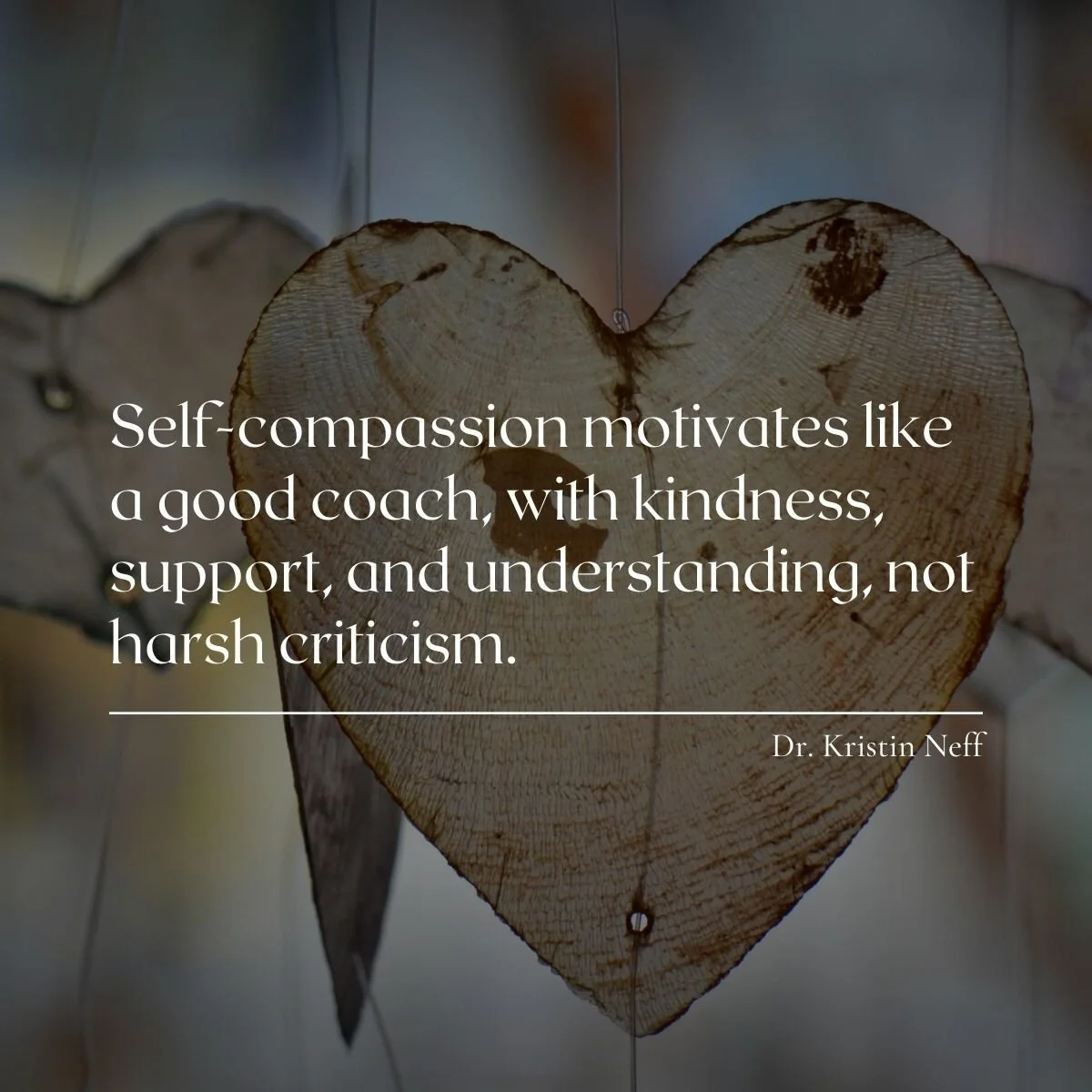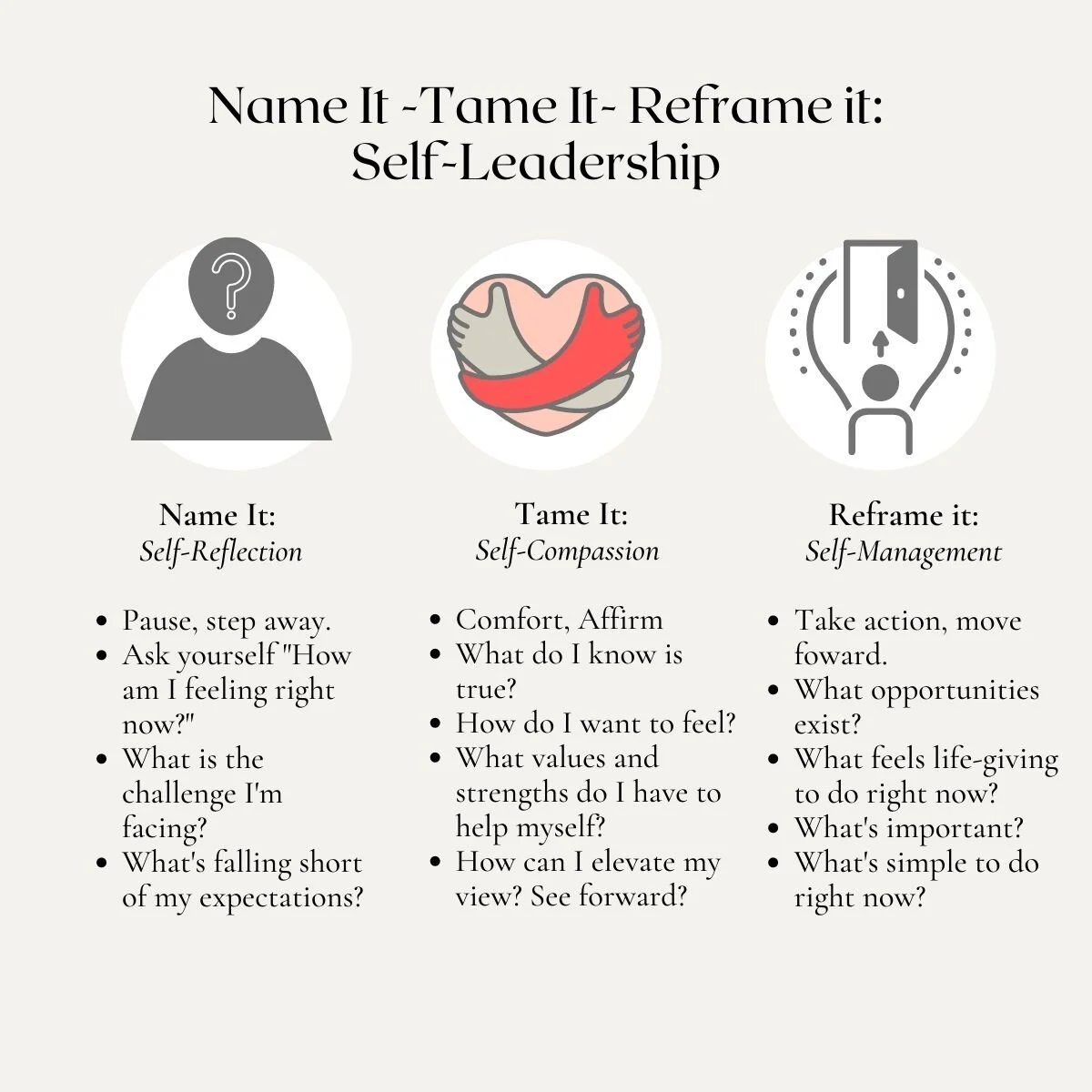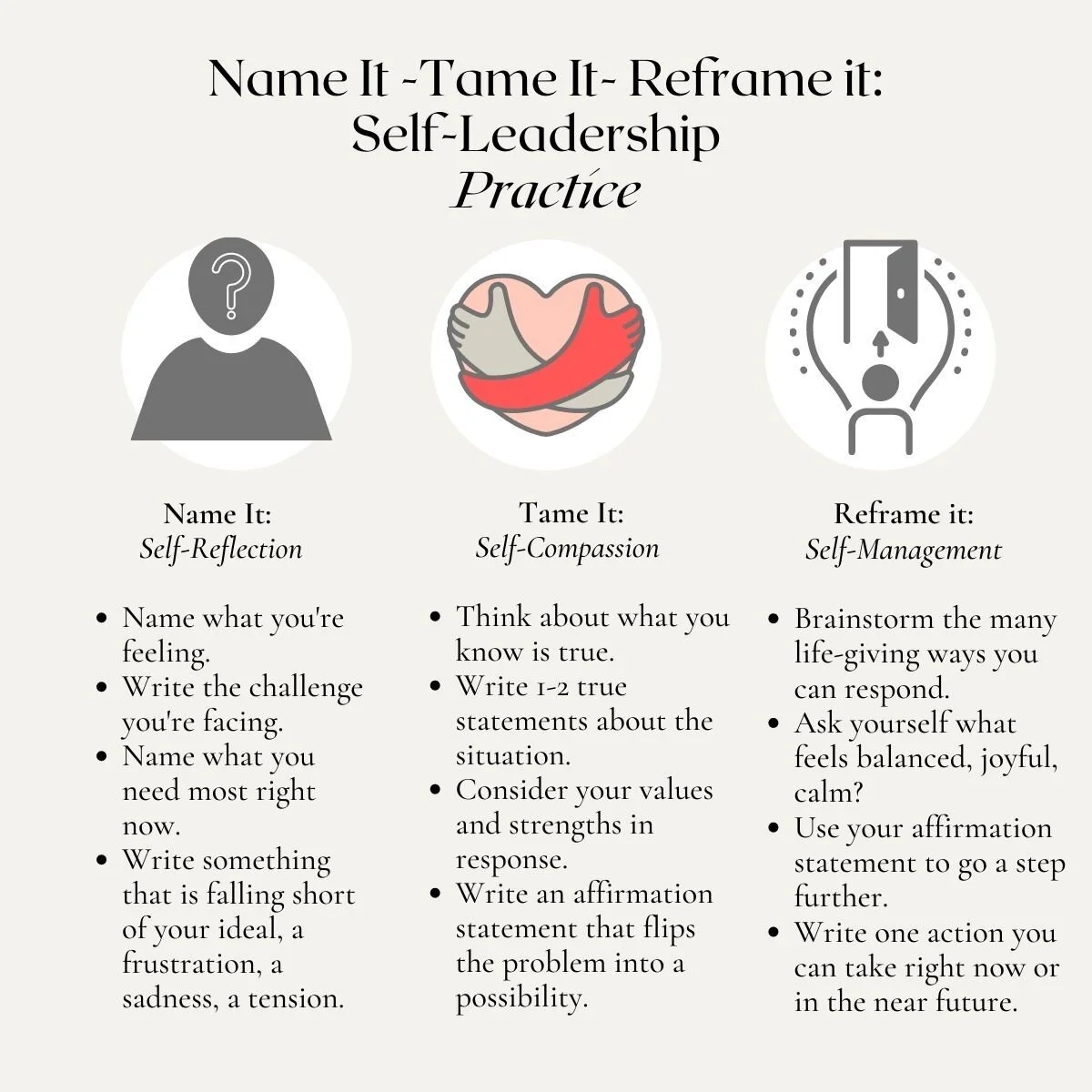Are you taking action with self-compassion?
Do you find yourself feeling stuck sometimes in a negative mind loop, and wondering why you can’t move forward? Are you hesitant to face big emotions or do you push away your feelings? Do you feel like you’re not moving fast enough to see the bright side?
When you’re finally feeling hopeful and ready to move forward, do you spend more time worrying things will fall apart than you do actually taking steps to move on?
Name It, Tame It, Reframe It
Jen Lopez
Reflection questions to engage in taking action with self-compassion
Throw yourself a lifeline
These are all signs you may be struggling to throw yourself a lifeline and hold compassion for yourself, especially when things are changing. When moving through any change effort, or even when trying to find a good rhythm to what you do in a day, you may be tempted to move quickly to a solution when you hit a roadblock, or you might get stuck and decide not to move forward at all.
One key to moving forward while also holding space for what you’re feeling in the moment is to Name It, Tame It, and Reframe It.
The overall purpose of this framework is to engage in Self-Leadership, to get unstuck, throw yourself a lifeline, and engage in self-compassion to move into seeing possibilities and taking specific action. It’s a way to look at things through more than “either/or” and to embrace the “both/and.” It’s not disruptive or expecting an immediate shift or instant results.
It’s about the freedom to try something on and to honor where you are, while also giving yourself permission to think of what might be possible. It’s also about finding certainty within uncertainty—a way to ground yourself so you can take action.
Here’s an example of Naming It—a struggle you’re facing right now.
Naming it is about acknowledging the problem you’re facing and the emotions you’re feeling. It’s an opportunity to engage in self-reflection.
Taming it is an opportunity to engage in self-compassion. It’s about comforting yourself and affirming yourself by recognizing what’s actually true about a situation, writing an affirmation statement based on a strength you have, or being willing to flip the problem into possibility. It’s all about making a mindset shift.
Reframing it is about taking action and moving forward. It’s leveraging your strengths to take a step into what you want more of. It’s taking action based on what’s most important, what feels life-giving, and what’s simple but will make a positive impact.
It’s not about rushing.
It’s important to know that walking through the Name It, Tame It, Reframe It process doesn’t have to be linear. You may find yourself completely in tune with your emotions or your problem and ready to move right to re-framing the problem into an opportunity and taking action. You may need more time to stay processing your emotions, and might move back and forth between naming it and taming it until you have enough peace and readiness to go forward. It’s important to know that this is not about rushing through feelings or emotions. It’s about recognizing them and responding, instead of only reacting in a way that makes you feel more tired and less empowered and hopeful, stuck in negative loop.
Below is an overview of how to put this into practice.
Name It, Tame It, Reframe It
Jen Lopez
Practice taking action with self-compassion.
Taming and Reframing
How do you tame and re-frame the challenge shown above about time for you, the children, and school?
Here are some ideas on how you might tame and reframe that challenge to take action that feels life-giving and full of grace, and to experience a sense of joy and calm.
One major key to moving from naming into taming, and reframing is to lean into more of what you want, and not into more of what you don’t want.
In this example, instead of focusing on what’s not working or how little time there is, as you move from acknowledging the challenge and the frustration you may be experiencing, ask yourself how you want to feel, what you want more of. You may want more time, but you may want more flexibility or more things to look forward to during the day. As you explore what you want more of, this opens a pathway to brainstorming the possibilities that exist to bring that to life.
“When we are mindful of our struggles, and respond to ourselves with compassion, kindness, and support in times of difficulty, things start to change. We can learn to embrace ourselves and our lives, despite inner and outer imperfections, and provide ourselves with the strength needed to thrive.”





